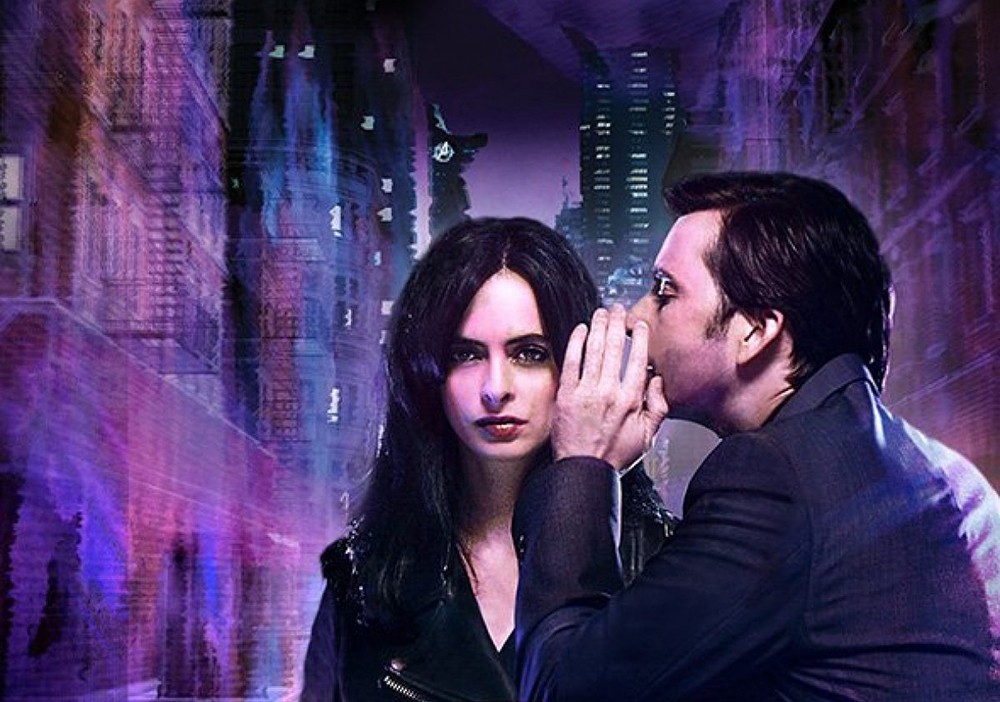While movies and television shows based on comic books are a white-hot commodity right now, they've been justifiably criticized for their lack of female lead characters. Despite Marvel's large stable of strong, compelling lady superheroes, only Black Widow has made an appearance in more than one film, and she's rarely given any agency of her own, usually only supporting Iron Man or Captain America in their own plotlines. Netflix's Jessica Jones, the first female-centric show taking place in the Marvel Cinematic Universe, attempts to compensate for this lack of female representation by being probably the most overtly feminist superhero show ever.
The feminist themes in Jessica Jones aren't subtle. The title character, played by Krysten Ritter (Breaking Bad), is a private detective with superhuman strength whose surly, boozy demeanor belies post-traumatic stress from an abusive relationship with Kilgrave (David Tennant, Doctor Who), a men's rights activist's wet dream who has the power to make anyone (though mostly women) do whatever he tells them to do. He repeatedly tells women to smile, and they do even though they don't want to, fulfilling the wishes of every creepy stranger who feels the need to tell women to smile on the street. After Kilgrave claims another unwilling victim, Hope (Audrey Hart, True Detective), and forces her to kill her parents, Jessica Jones spends the rest of the season trying to track him down while coping with the fallout from her own experiences as a victim of abuse.
Showrunner Melissa Rosenberg, best known for writing the Twilight film adaptations, makes up for that series' romanticization of an essentially abusive relationship by eschewing romance for dark reality. A support group is formed for Kilgrave's victims. Jessica's best friend, Trish Walker (Rachael Taylor, 666 Park Avenue), a victim of abuse herself, meets a "nice guy" who turns out to be anything but. The themes of control, power and abuse pop up again and again in a lawyer's divorce proceedings and a neighbor's addiction to heroin. One of the very few "good guys" in the show, bartender Luke Cage (Mike Colter, The Good Wife), is also one of the only men who isn't out to tell women what to do, instead simply telling Jessica, "Do what you gotta do." We can only hope that Marvel takes that advice and continues to do whatever they have to do to keep making female-driven movies and shows that are this honest and compelling.


